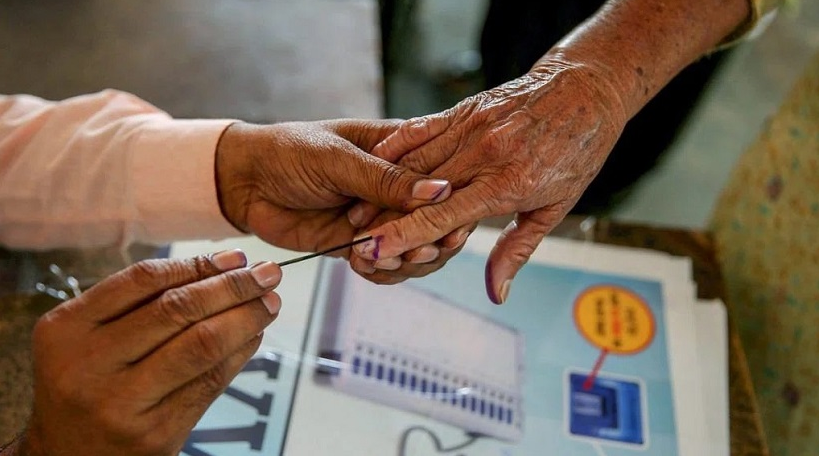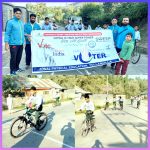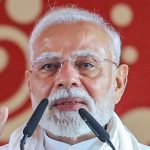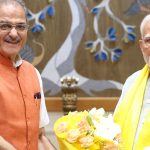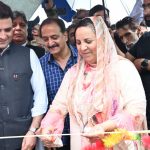The Jammu and Kashmir assembly elections are expected to witness an unprecedented political atmosphere, marked by high voter turnout and a surge in independent candidates. The significance of this election cannot be overstated, given the 10-year hiatus since the last assembly elections were held in the region. Several factors are contributing to this heightened political engagement, particularly the increase in independent candidates vying for seats. These factors reflect the changing socio-political dynamics in the region and the sense of urgency among the population to address pressing local issues.
A decade-long wait for elections: The catalyst for political reawakening
One of the most prominent factors driving high voter turnout and the surge in independent candidates is the long gap between assembly elections. Since 2014, Jammu and Kashmir has witnessed significant political and administrative changes, the most notable being the abrogation of article 370 and the bifurcation of the state into two union territories. This extended gap has created a void in democratic representation, which has only intensified the public’s desire to participate in the political process. The absence of local governance for nearly a decade has left a deep impact on the people of Jammu and Kashmir. As a result, the electorate is more eager than ever to voice their opinions, especially regarding issues that have remained unresolved during this period. The lack of an elected assembly has resulted in limited avenues for public participation in governance, further fueling a desire for representation. The upcoming elections are, therefore, seen as an opportunity for the people to reassert their role in shaping the region’s political future.
The emergence of a new electorate: Fresh perspectives and new issues
The addition of new voters to the electorate is another critical factor shaping the upcoming elections. Over the past decade, a substantial number of young people have become eligible to vote. These new voters bring with them fresh perspectives, concerns, and aspirations that differ from those of previous generations. This demographic is less influenced by the traditional political narratives that have dominated Jammu and Kashmir and is more focused on issues such as unemployment, development, and governance.
The concerns of the younger electorate are also influenced by the changing socio-political environment in the region, particularly following the abrogation of article 370. This event has had a profound impact on the political consciousness of young people, many of whom feel a deep sense of alienation and disenfranchisement. The need to address this sentiment is expected to be a defining feature of the elections, with independent candidates emerging as a viable option for those who feel disconnected from the established political parties.
Disillusionment with regional political parties: The rise of independent candidates
A key driving force behind the increasing number of independent candidates is the growing disillusionment with traditional regional political parties. Over the years, parties such as the Jammu and Kashmir National Conference (NC) and the Jammu and Kashmir Peoples Democratic Party (PDP) have dominated the political landscape. However, their failure to address critical issues, along with a perception of being disconnected from the ground realities, has led many to seek alternatives.
This disillusionment has resulted in a significant number of individuals choosing to contest elections as independents. These candidates believe they can better represent the aspirations and concerns of their communities without the constraints of party politics. Independent candidates often campaign on platforms focused on specific local issues, making them more relatable to the electorate. Additionally, the electorate, particularly the youth, sees these independents as a fresh and dynamic force in politics, untainted by the legacy of the traditional political order.
The aftermath of the abrogation of article 370 and article 35A
The abrogation of article 370 and the removal of article 35A in August 2019 marked a significant shift in the political landscape of Jammu and Kashmir. While some viewed it as a move toward deeper integration with India, for many in the region, it signified the loss of their special status and an erosion of their unique identity. The administrative and legal changes that followed have led to widespread feelings of suppression and dissatisfaction among large sections of the population.
This shift has also contributed to a perceived sidelining of regional political voices, prompting many individuals to run as independent candidates, aiming to fill the space left by the traditional parties’ weakening influence. The upcoming elections will offer these voices a chance to be heard and could serve as a referendum on the changes introduced since 2019.
Rising unemployment and local issues: A youth-led political awakening
Unemployment remains one of the most pressing issues in Jammu and Kashmir, particularly among the youth. The lack of job opportunities has left a generation of young people feeling disillusioned and uncertain about their future. Coupled with this are local issues such as irregular power supply, increased electricity tariffs, and inadequate grievance redressal mechanisms. These concerns have motivated many young people to take matters into their own hands by running for elections independently.
Limited access to administration and grievance redressal
One of the significant issues that have arisen during the absence of an elected assembly is the limited access to administration and the lack of effective grievance redressal mechanisms. Without a functioning local government, many citizens have found it challenging to address their concerns and resolve everyday issues related to public services, infrastructure, and development. This has created a sense of frustration and helplessness among the populace.
A stone-pelting-free election environment: A new era of peaceful political engagement
One of the most significant changes in the political landscape of Jammu and Kashmir is the anticipated peaceful environment in which the upcoming elections are expected to be held. In the past, elections in the region were often marred by incidents of violence, including stone-pelting and clashes between protestors and security forces. However, recent years have seen a decline in such activities, creating an environment conducive to peaceful political engagement.
The absence of widespread violence is expected to encourage higher voter turnout, as people feel safer participating in the electoral process. Moreover, the peaceful environment is likely to embolden more individuals to contest elections as independent candidates, without the fear of intimidation or violence. This shift marks a new era of political engagement in Jammu and Kashmir, one where the focus is on dialogue, debate, and democratic participation rather than conflict.
The changing political landscape of Jammu and Kashmir
The upcoming Jammu and Kashmir assembly elections are poised to be a watershed moment in the region’s political history. The combination of a long gap between elections, disillusionment with traditional political parties, the emergence of a new electorate, and the changing socio-political environment has set the stage for a significant transformation. Independent candidates are expected to play a crucial role in this process, offering voters an alternative to the established political order.
Conclusion
As Jammu and Kashmir moves towards a new era of democratic representation, the issues that have long plagued the region, such as unemployment, inadequate public services, and political disenfranchisement, will take center stage. The electorate, particularly the youth, is eager for change, and independent candidates are positioning themselves as the agents of that change. Whether this election will bring about the desired transformation remains to be seen, but one thing is certain: the political landscape of Jammu and Kashmir is shifting, and the upcoming elections will be a crucial step in shaping its future.
(The author is a political analyst and national TV debater. The views expressed are his own and can be reached on @[email protected])




